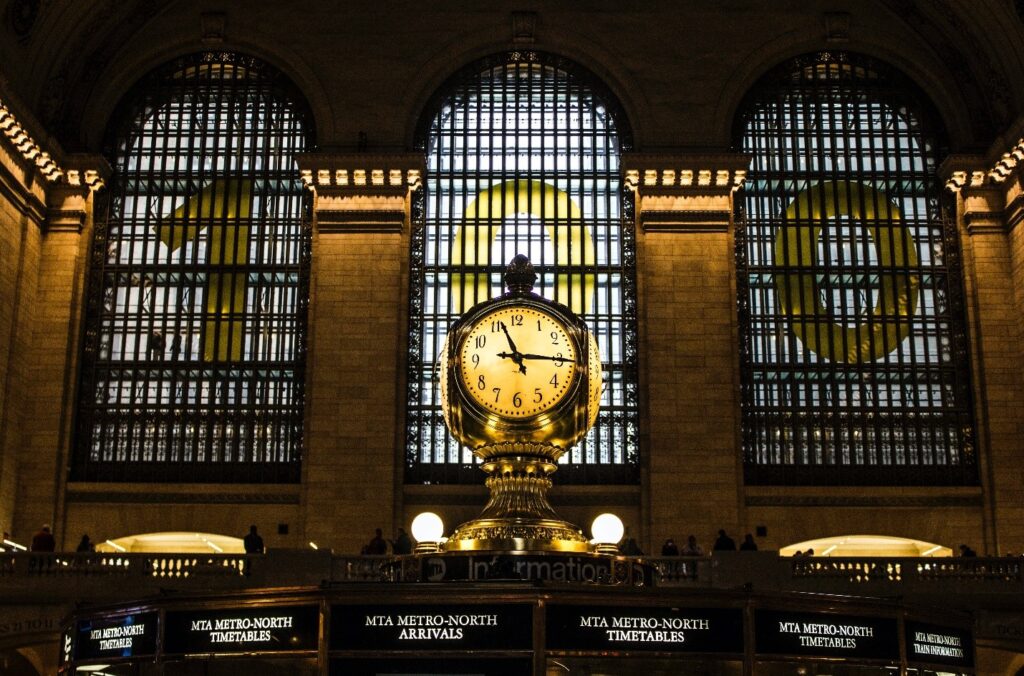Time travel, an alluring concept that has captivated the human imagination for centuries, beckons us into the depths of philosophical wonder. This enigmatic notion has been painstakingly woven into the fabric of literature, etched across the silver screen, and debated in the hallowed halls of scientific discourse. It beckons us to journey through the corridors of time, whether to the annals of the past or the uncharted territories of the future.
Before we plunge headlong into the intricacies of time travel, we must first grapple with the profound question: What is time? In the labyrinth of philosophical pondering, time emerges as an abstract construct that weaves the very fabric of our reality. Here, two titanic theories stand in stark contrast: the A-theory and the B-theory.
The A-theory, akin to the musings of philosophers such as J.M.E. McTaggart, postulates that time unfurls as a sequence of ever-shifting, distinct moments. It champions the belief that the past, the present, and the future are palpable and separate, and the ceaseless flow of time is an elemental essence of our human existence.

In sharp contrast, the B-theory, championed by luminaries like J.M. Smart and later embraced by the luminaries of theoretical physics, conceives of time as a monolithic block universe. According to this view, past, present, and future coexist harmoniously, and our perception of temporal passage s but a mirage dancing upon the stage of reality.
These divergent views on the essence of time lay the cornerstone for the profound philosophical dialogues that accompany the notion of time travel.
Within the realm of time travel, paradoxes beckon like sirens, luring us into seas of paradoxical contemplation. The illustrious grandfather paradox stands as a quintessential enigma: If you were to journey into the past and thwart the fateful meeting of your grandparents, the very act would erase your own existence, rendering your temporal escapade a paradoxical riddle.
Causal loops, epitomised by the bootstrap paradox, unveil intricacies that enthral and confound. Here, an event from the future intricately dances with the past, a cosmic tango where effect begets cause, and cause begets effect, in a tantalising display of temporal interplay.
To address these labyrinthine paradoxes, the Many-Worlds Interpretation (MWI) of quantum mechanics emerges as a compelling contender. Quantum luminaries such as Hugh Everett III have woven this tapestry, suggesting that every plausible outcome of an event unfolds across a tapestry of parallel universes. When time travellers reshape the past, they do not annihilate existence but rather craft new branches in the tree of reality, nimbly sidestepping paradoxes that have bedevilled conventional time travel.

MWI cascades into the realm of profound philosophy, painting a multiverse where every decision births myriad diverging timelines. It forces us to ponder the intricate dance of choice and consequence, and the potential multiplicity of realities woven into the tapestry of existence.
Time travel has etched its indelible mark across the pages of literature and the silver screen for generations. Literary luminaries such as H.G. Wells, with his “The Time Machine,” and Mark Twain’s satirical “A Connecticut Yankee in King Arthur’s Court,” have harnessed the written word to plumb the depths of temporal possibilities. In the cinematic realm, films like “Back to the Future” and “Interstellar” have enthralled audiences with their chronicles of temporal gymnastics.
These creative endeavours wield time travel as a narrative scalpel, dissecting the human experience, ethical quandaries, and the profound consequences of meddling with the past or glimpsing the future. They beckon us to ponder the fragility of the space-time tapestry and the labyrinthine choices that confront time travellers.
The philosophy of time travel unfurls as a multidimensional and labyrinthine field, unraveling the very essence of time, the threads of causality, and the nature of reality itself. Whether contemplated through the lenses of philosophy, scientific inquiry, or the lens of popular culture, the enigma of time travel ceaselessly challenges our comprehension of the cosmos. As science and technology continue their inexorable march, the lines between the conceivable and the implausible in the realm of time travel may blur, leaving us to ponder the profound ramifications for our existence within the grand tapestry of time. Time travel remains an enduring beacon, inviting us to explore, contemplate, and wonder about the mysteries it holds, both within the confines of our minds and in the boundless cosmos beyond.
Sources
- https://vocal.media/humans/voyaging-through-time-unraveling-the-threads-of-time-travel
- https://medium.com/@realitylies281/unraveling-the-mysteries-of-time-travel-a-journey-through-possibilities-5f482e916a95
- https://medium.com/@TheNarrativeForge/breaking-the-illusion-unraveling-the-myth-of-time-travel-aba6c874ba72?source=rss——-1




